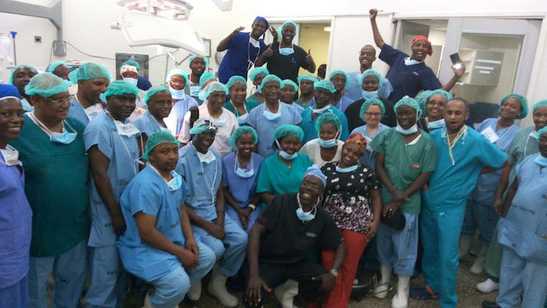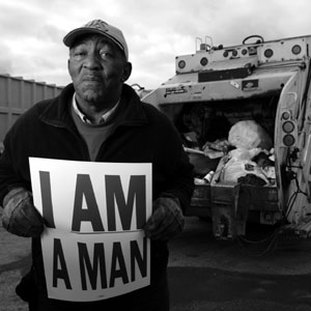 The Kenyan medical team that separated conjoined twins after a 23-hour surgery in November 2016. SOURCE: This is Africa.
The Kenyan medical team that separated conjoined twins after a 23-hour surgery in November 2016. SOURCE: This is Africa.
 The Kenyan medical team that separated conjoined twins after a 23-hour surgery in November 2016. SOURCE: This is Africa. The Kenyan medical team that separated conjoined twins after a 23-hour surgery in November 2016. SOURCE: This is Africa.
2017 will be a tense year for Kenya. It begins with wananchi suffering from lack of health services in the country's public hospitals due to the doctors' strike, and huge dissatisfaction with the runaway corruption that has plagued the Jubilee government. And yet, it appears that the Jubilee government is sabotaging the ability of voters to express that dissatisfaction through the ballot, especially after bulldozing amendments to the electoral act. But when it comes to healthcare, all sides of the political divide are amazingly united in shunning the public healthcare facilities they are supposed to build, and in seeking treatment in private hospitals or abroad. They then console us with philanthropy for services our taxes are supposed to provide, as our taxes disappear through corruption. Meanwhile, the journalists reporting the stories miss the ironies of the politicians' treatment choices.
15 Comments
 Source: LinkedIn Source: LinkedIn A few days ago, the Standard Newspaper posted what was supposed to be a harmless article about Ruth Odinga, Deputy Governor of Kisumu County, bedridden with a leg fracture in a hospital in London. The article focused on her patriotism to her ODM party, because she requested an orange-colored cast, which was supposed to be a consolation for not being with her family at Christmas. And just to give the story some political flavor, the writer kicked in some lines about her concern that not many women were running for the seat of Governor. That she was a politician, responsible for her county’s healthcare services, getting treatment abroad, was not an issue. That was supposed to be normal.  Sanitation worker Ben Jones, now 71, holds a replica placard of the words made famous by strikers in Memphis who demanded better wages and respect. CARL JUSTE / MIAMI HERALD STAFF Sanitation worker Ben Jones, now 71, holds a replica placard of the words made famous by strikers in Memphis who demanded better wages and respect. CARL JUSTE / MIAMI HERALD STAFF Many years ago, in my moments of pulling my eyes away from my incomplete dissertation, I watched an episode of some American reality court TV. It was probably Divorce Court, presided by Judge Mablean Ephraim or Lynn Toler. In that episode, the judge blasts a young black man for absconding from his family responsibilities because of the difficulties black men face in the US. I have looked in vain for the episode on youtube to refresh my memory. But what I remember is the judge being flabbergasted by the excuses of the young man. She said something to the effect that her father worked a menial job to put food on the table, even though times for black men were much harder than they are now. The point was that it’s not so much how much a man puts on the table, but the effort, love and consistency with which he does it.  Source: ABCNews Source: ABCNews I have been diagnosed with a deadly disease once in my life. It was breast cancer. Even though my body seems to have been cleared of it now, I’ve been told that I had an aggressive strain that is known to return in more patients than others. So I kind of have a clue about what it means to look at death in the face. On the other hand, when I read the sad story of the panic, riots and misinformation that have plagued particularly Liberia and Sierra Leone following the Ebola outbreak, I know that mine is a totally different experience. Ever since I was told that I needed to be tested for cancer, and as I waited for biopsy results, I thought through what confirmation of having the disease would mean. Two major questions were on my mind: |
|

 RSS Feed
RSS Feed
